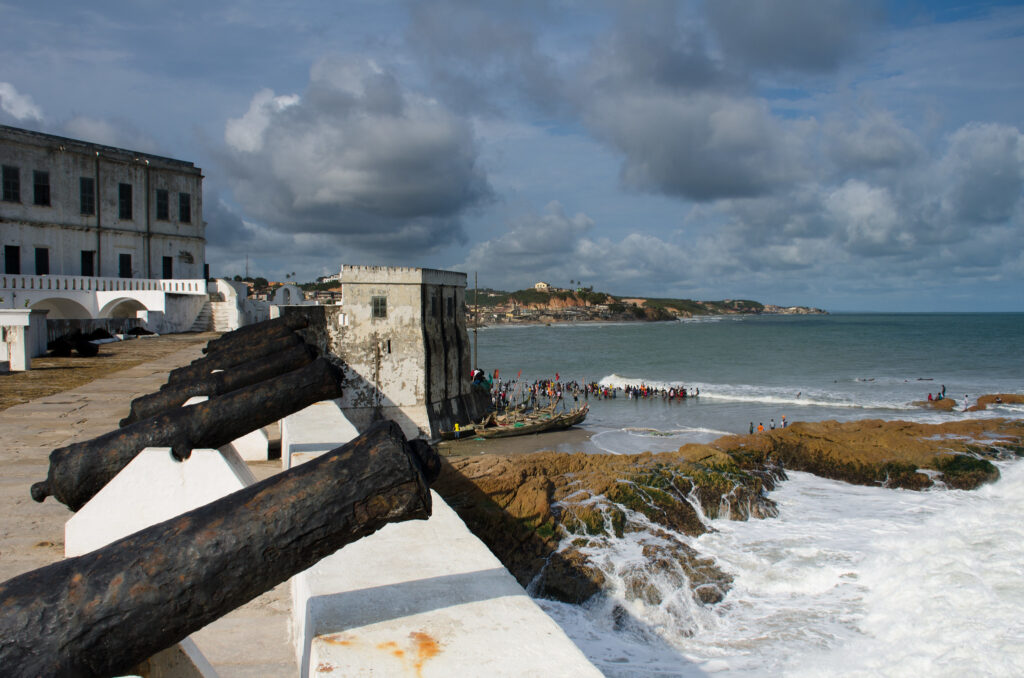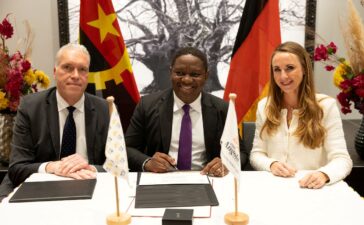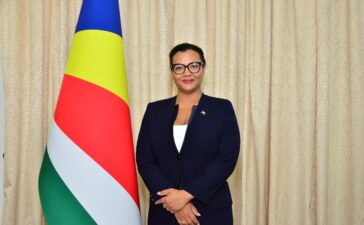The premium heritage experience represents the evolution of geneology tourism from basic genealogical tours to comprehensive luxury experiences. His clients don’t just visit historical sites—they undergo traditional naming ceremonies with Ashanti chiefs, participate in artisan workshops with master craftspeople, and receive personalized genealogical research combining DNA analysis with oral history.
The price tag reflects this depth: $3,000-$8,000 for two-week experiences that Thompson describes as “life transformation, not vacation.” His waiting list extends six months, with repeat bookings accounting for 40% of his business.
“We’re not competing with regular tour operators,” Thompson explains from his Accra headquarters. “We’re creating experiences that justify premium pricing because they deliver emotional value that people can’t find anywhere else.”
Thompson’s success illustrates a broader trend across West Africa’s heritage tourism sector: operators who understand the psychology of ancestral return can command luxury pricing while maintaining full booking calendars.

Industry Infrastructure Responds
The hospitality industry has taken notice. Major hotel chains across the region now offer heritage-focused packages that go far beyond standard tourism amenities. The Labadi Beach Hotel in Accra created an “Ancestral Return” suite featuring traditional Ghanaian design elements, cultural artifacts, and concierge services specializing in genealogical research.
Kempinski Hotels’ Gold Coast City property offers “Roots Revelation” packages including private cultural performances, meetings with traditional authorities, and partnerships with local genealogists. Occupancy rates for heritage packages consistently exceed standard bookings, with guests staying longer and spending more on additional services.
“Our geneology tourism guests have completely different spending patterns,” explains Kwame Asante, Director of Guest Experience at a luxury Accra property. “They book spa treatments incorporating traditional healing practices, purchase extensive local artwork, and hire private guides for multiple days. Their average spend is 300% higher than regular tourists.”
Independent luxury operators are also thriving. Elmina-based Ancestry Africa charges $12,000 for three-week “Roots Revelation” experiences including genetic consultation, traditional ceremonies, artisan workshops, and meetings with traditional authorities. Their client base includes celebrities, executives, and affluent retirees willing to invest significantly in ancestral connection.
Technology Partnerships Drive Growth
The geneology travel boom directly connects to advances in genetic testing accessibility. Airbnb’s 2019 partnership with 23andMe represents just one example of travel companies recognizing that DNA curiosity translates into bookings. The partnership offers curated experiences in locations matching customers’ genetic heritage, with West Africa featuring prominently in recommended destinations.
Heritage travel apps now connect diaspora travelers with local guides, traditional historians, and cultural sites. Some integrate directly with DNA testing platforms, automatically generating suggested itineraries based on genetic results. TravelGenes, launched in 2023, has facilitated over 2,000 West African geneology trips by connecting genetic data with local cultural experiences.
“We’re seeing the convergence of biotech and travel tech,” explains Dr. Sarah Mitchell, a tourism technology consultant. “When someone gets their DNA results showing West African ancestry, we can immediately offer them culturally relevant, personally meaningful travel experiences. It’s incredibly powerful for conversion.”

Government Investment and Strategy
West African governments have recognized genealogy tourism’s strategic value beyond immediate economic benefits. Ghana’s “Year of Return” campaign invested $25 million in marketing and infrastructure, generating tourism revenues exceeding $1.9 billion. The return on investment convinced other countries to develop similar programs.
Senegal’s “Retour aux Sources” initiative includes airport improvements, heritage site restoration, and training programs for cultural guides. The government estimates geneology tourism could generate $500 million annually by 2027.
Sierra Leone’s Right of Abode program specifically targets Caribbean diaspora communities, offering citizenship pathways that facilitate long-term investment rather than just tourism visits. The program has attracted over 1,000 applications since launching in 2022.
“We’re not just selling tourist experiences,” explains Dr. Aisha Kamara, Sierra Leone’s Deputy Minister of Tourism. “We’re building lasting relationships with diaspora communities that generate ongoing economic benefits through investment, business development, and cultural exchange.”
The Local Economy Impact
Geneology tourism’s economic benefits extend far beyond hotels and tour operators. In Cape Coast, local artisans report 60% income increases from diaspora visitors purchasing traditional textiles, jewelry, and cultural artifacts. Kente weaving cooperatives have expanded production and hired additional weavers to meet demand from heritage tourists.
Traditional authorities also benefit economically. Chiefs who participate in naming ceremonies for diaspora visitors typically receive donations ranging from $200-$1,000 per ceremony. Some traditional councils have formalized these interactions, creating structured programs that generate sustainable revenue while maintaining cultural authenticity.
“The diaspora tourists respect our traditions and pay appropriately for cultural experiences,” explains Nana Kwaku Boateng III, a traditional chief in the Central Region. “It’s helped us maintain our cultural practices while supporting our communities economically.”
Local guides specializing in geneology tourism earn significantly more than general tour guides. Fatou Ba, the Senegalese griot featured in Part 1, charges $150 per day for geneology tours compared to $40 for standard tourism, reflecting the specialized knowledge and emotional labor required.
Corporate Opportunities and Partnerships
International corporations are recognizing genealogy tourism’s market potential. Airlines serving West Africa have developed specialized marketing campaigns targeting diaspora communities. Delta Air Lines’ “Discover Your Roots” campaign generated a 40% increase in bookings to West African destinations among African American travelers.
Hospitality management companies are creating West Africa-specific training programs for staff working with geneology tourists. These programs emphasize cultural sensitivity, historical knowledge, and emotional support skills necessary for guests undergoing potentially transformative experiences.
Financial services companies are also entering the market. Several banks now offer “heritage investment” products helping diaspora visitors purchase land, start businesses, or invest in local development projects. These services recognize that geneology tourism often leads to longer-term financial commitments to West African communities.
The Premium Experience Economy
High-end geneology tourism operators have identified key elements that justify premium pricing:
Personalized Research: Combining DNA results with traditional genealogical methods and oral histories to create detailed ancestral narratives.
Exclusive Access: Private meetings with traditional authorities, closed-door cultural ceremonies, and access to restricted historical sites.
Luxury Logistics: High-end accommodation, private transportation, gourmet dining featuring traditional cuisine, and 24/7 concierge support.
Ongoing Relationships: Facilitating lasting connections with local families, cultural institutions, and business opportunities that extend beyond single visits.
Emotional Support: Recognition that geneology tourism can be psychologically intense, with guides trained to provide appropriate emotional support throughout the journey.
Challenges and Market Tensions
However, this boom hasn’t occurred without complications. In some Ghanaian communities, residents express frustration about inequality between wealthy diaspora visitors and local economic struggles. Property prices in popular geneology tourism areas have increased significantly, sometimes pricing out local residents.
“They come with American dollars, buy up land, drive up prices,” complains Kofi Asante, a Cape Coast taxi driver. “Meanwhile, local youth can’t afford university. The government cares more about diaspora than their own people.”
These tensions reflect broader questions about tourism’s economic distribution. While geneology tourism generates significant revenue, ensuring equitable benefit distribution remains challenging. Some operators are addressing this by implementing community development components, local hiring requirements, and revenue-sharing agreements with traditional authorities.
Quality Control and Authenticity
As the market grows, maintaining quality and authenticity becomes increasingly important. Some operators make genealogical claims that DNA testing cannot support, promising specific tribal connections that genetics cannot definitively establish.
“DNA testing provides regional approximations, not specific tribal affiliations,” explains Dr. John Agyekum, a genetic anthropologist at the University of Ghana. “Operators who promise precision that science cannot deliver risk disappointing clients and damaging the industry’s credibility.”
Successful operators focus on cultural connection rather than specific genealogical precision, emphasizing shared heritage and contemporary cultural practices rather than definitive ancestral lineages.
Looking Forward: Market Evolution
Industry analysts predict continued growth in West African geneology tourism, with several trends shaping future development:
Expansion Beyond Traditional Markets: While African American travelers dominated early geneology tourism, Caribbean, Brazilian, and European diaspora communities represent growing market segments.
Technology Integration: VR and AR technologies are beginning to enhance historical site experiences, allowing visitors to visualize historical periods and understand ancestral connections more vividly.
Sustainable Development: Next-generation operators increasingly emphasize community benefits, environmental responsibility, and cultural preservation alongside commercial success.
Corporate Partnerships: More international companies are likely to develop West Africa-specific products and services targeting diaspora travelers and potential investors.
The geneology tourism industry in West Africa has evolved from curiosity-driven visits to sophisticated, high-value experiences that generate substantial economic benefits while facilitating meaningful cultural connections. As the market matures, operators who balance authenticity with luxury, cultural respect with commercial viability, and visitor satisfaction with community benefits are positioning themselves for long-term success in this rapidly growing sector.
Market Snapshot: Geneology Tourism by the Numbers Ghana (2024 data):
- 1,500+ African-Americans relocated since 2019
- Tourism spending: $2,589 per visitor (up from $1,862 in 2017)
- Total sector impact: $1.9 billion
- 524 people granted citizenship in largest single ceremony
Senegal:
300% increase in diaspora visitors since 2020
Average ancestry tour price: $4,500-$8,000
Government target: $500 million annual revenue by 2027
Sierra Leone:
1,000+ Right of Abode applications since 2022
60% of applicants are Caribbean diaspora
Average visitor stay: 14 days (vs. 7 days for general tourism)
Industry Averages:
Ancestry tourists spend 300% more than regular tourists
40% make repeat visits within three years
25% make investments in local businesses or property








